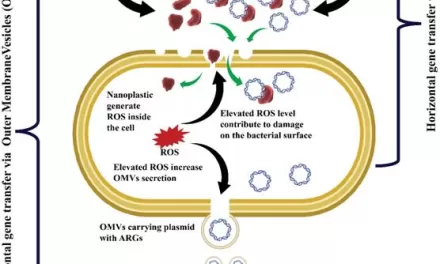Dec. 17, 2024
A groundbreaking approach to fighting lung cancer is making waves in the medical community. The world’s first mRNA lung cancer vaccine, known as BNT116, is currently in phase I clinical trials across the United States, United Kingdom, and other European nations. Developed by BioNTech, the vaccine is designed to treat non-small-cell lung cancer (NSCLC), the most prevalent type of lung cancer.
Unlike traditional vaccines that aim to prevent diseases, BNT116 is intended for treatment, offering hope to patients with early-stage, advanced, or recurring lung cancer.
Lung cancer remains the leading cause of cancer deaths worldwide, with survival rates especially grim for advanced cases. “It is exciting that we are seeing novel technologies and strategies for further enhancing the immune system’s response against targets on lung cancer,” said Dr. Diane Tseng, a medical oncologist at the Fred Hutch Cancer Center in Seattle.
How mRNA Technology Works
BNT116 employs mRNA technology, the same platform behind the COVID-19 vaccines, to revolutionize cancer immunotherapy. According to Dr. Eric Singhi, a thoracic oncologist at the University of Texas MD Anderson Cancer Center, the vaccine delivers mRNA strands that instruct the body to produce six specific proteins associated with NSCLC cells.
“These proteins act as flags or markers, prompting the immune system to attack cancer cells while sparing healthy tissue,” explained Singhi. This approach provides a key advantage over chemotherapy, which indiscriminately targets both cancerous and healthy cells, often resulting in severe side effects.
“If successful, BNT116 could offer a targeted treatment strategy that may not only improve survival rates but also help prevent cancer recurrence in ways traditional therapies cannot,” Singhi added.
Unlike personalized cancer vaccines tailored to an individual’s tumor mutations, BNT116 uses an “off-the-shelf” approach. “This design allows for broader accessibility and easier delivery to patients,” said Dr. Adam Schoenfeld of Memorial Sloan Kettering Cancer Center. However, he cautioned that the vaccine’s effectiveness is limited to tumors expressing the six specific antigens targeted.
Challenges and Future Prospects
While promising, BNT116 is still in its infancy. Researchers are working to determine its optimal dosage, safety, and overall effectiveness. Potential side effects—ranging from mild symptoms like fever and fatigue to severe complications like pneumonia and collapsed lungs—underscore the need for caution as trials progress.
“Clinical trials like this one are critical for advancing medical knowledge and discovering new treatments,” Singhi emphasized. However, he noted that these trials remain experimental and are not yet approved for general use.
Experts also aim to explore how the vaccine performs alongside other treatments and in diverse populations. If successful, BNT116 could pave the way for more versatile mRNA platforms targeting other forms of cancer.
Dr. Tseng expressed optimism about the innovation: “The concept of an mRNA vaccine platform is quite versatile and could be adapted toward various targets on cancer.”
A New Hope in the Fight Against Cancer
While much remains to be discovered about BNT116, its development marks a significant step forward in cancer research. For patients and families affected by lung cancer, it offers a glimmer of hope for a future where more effective and personalized treatments are within reach.
Those interested in participating in clinical trials should consult their healthcare providers to understand the potential risks and benefits.












